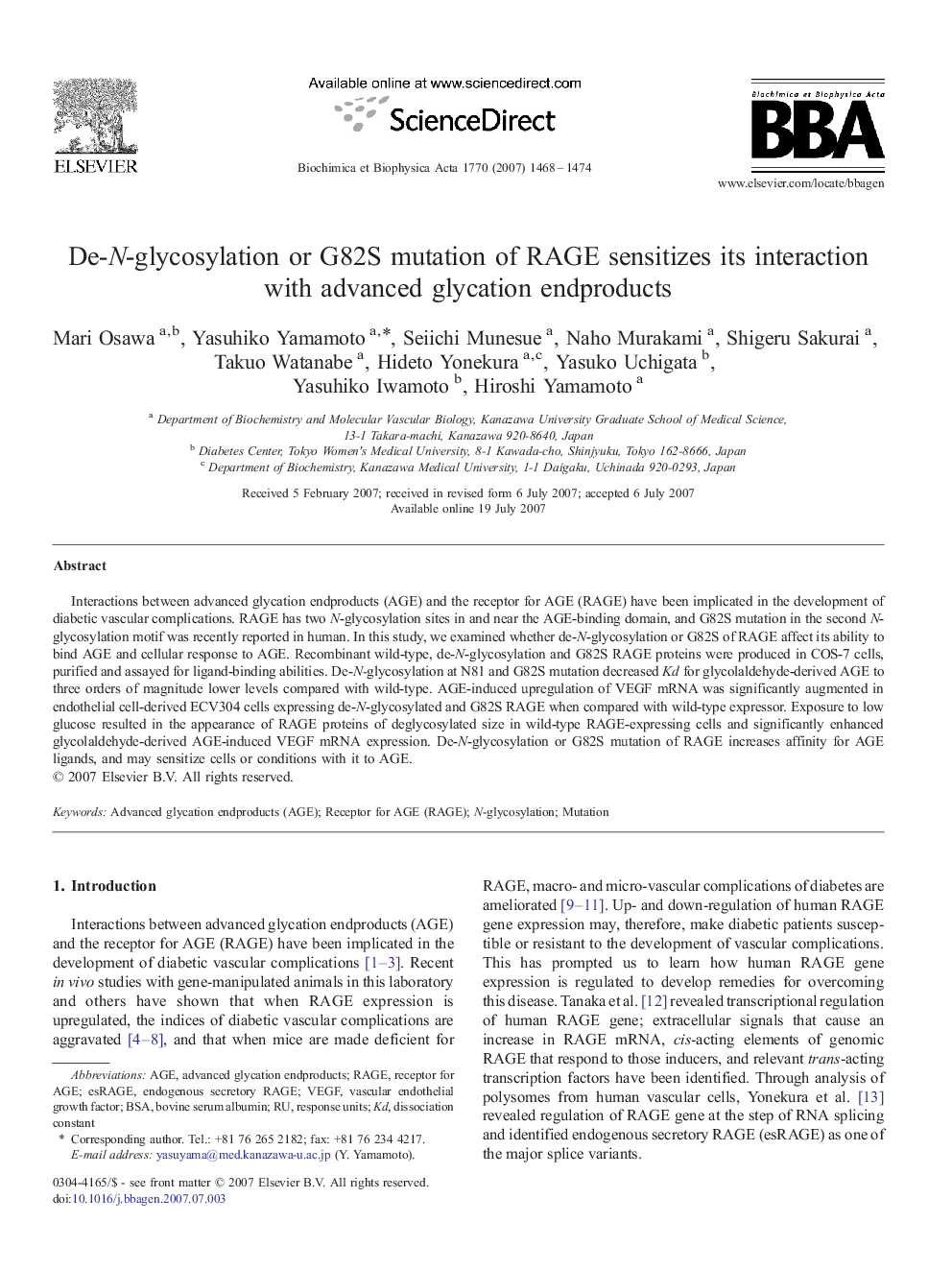| کد مقاله | کد نشریه | سال انتشار | مقاله انگلیسی | نسخه تمام متن |
|---|---|---|---|---|
| 1948474 | 1054696 | 2007 | 7 صفحه PDF | دانلود رایگان |

Interactions between advanced glycation endproducts (AGE) and the receptor for AGE (RAGE) have been implicated in the development of diabetic vascular complications. RAGE has two N-glycosylation sites in and near the AGE-binding domain, and G82S mutation in the second N-glycosylation motif was recently reported in human. In this study, we examined whether de-N-glycosylation or G82S of RAGE affect its ability to bind AGE and cellular response to AGE. Recombinant wild-type, de-N-glycosylation and G82S RAGE proteins were produced in COS-7 cells, purified and assayed for ligand-binding abilities. De-N-glycosylation at N81 and G82S mutation decreased Kd for glycolaldehyde-derived AGE to three orders of magnitude lower levels compared with wild-type. AGE-induced upregulation of VEGF mRNA was significantly augmented in endothelial cell-derived ECV304 cells expressing de-N-glycosylated and G82S RAGE when compared with wild-type expressor. Exposure to low glucose resulted in the appearance of RAGE proteins of deglycosylated size in wild-type RAGE-expressing cells and significantly enhanced glycolaldehyde-derived AGE-induced VEGF mRNA expression. De-N-glycosylation or G82S mutation of RAGE increases affinity for AGE ligands, and may sensitize cells or conditions with it to AGE.
Journal: Biochimica et Biophysica Acta (BBA) - General Subjects - Volume 1770, Issue 10, October 2007, Pages 1468–1474